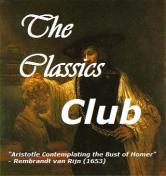
” ‘ The Inklings have already agreed that their victory celebration, if they are spared to have one, will be to take a whole inn in the country for at least a week, and spend it enitrely in beer and talk, without any reference to a clock!'” – from a letter by J. R. R. Tolkien as quoted by Joseph Loconte.
Joseph Loconte’s short volume A Hobbit, A Wardrobe and A Great War: How J. R. R. Tolkien and C. S. Lewis Rediscovered Faith, Friendship, and Heroism in the Cataclysm of 1914-1918 focuses on what influenced Tolkien, Lewis and their writings during the wake of the First World War. In addition, Loconte delves into why the works of these two authors may have differed in theme and tone from many of the other authors of the time. While everyone seemed to suffer from the disillusionment caused by The Great War, Tolkien and Lewis maintained a persistent hope while their contemporaries (such as Ernest Hemingway) may not have.
The influence that resonated with me the most was the friendship itself between the two writers. More detailed biographies that I’ve read don’t hide the fact that the friendship had its share of bumps and strains. Loconte’s book doesn’t dismiss this fact but it emphasizes the lasting aspect of the relationship.

When it comes to the writings of Lewis and Tolkien or the writings of some of my favorite “Lost Generation” writers, I’m not going to pick which ones I like better. All of them have had their impact on me. If I had the opportunity to go back in time to 1920’s Paris to hang out with Ernest Hemingway and F. Scott Fitzgerald like Owen Wilson did in Woody Allen’s Midnight in Paris, of course I would jump at the chance. But if I had to choose between which group of authors I would want to hang out with over the course of thirty or forty years, I think I would choose Tolkien, Lewis and their crowd.









